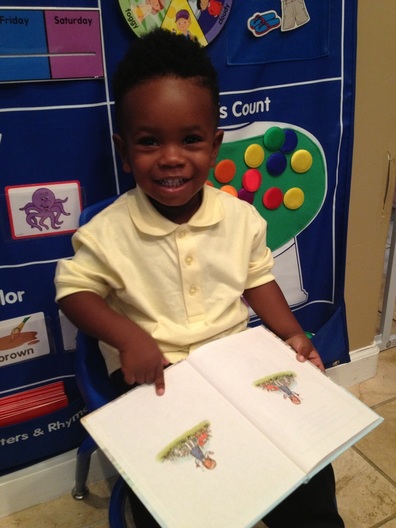Here is a list of website resources that parents will find useful to review.
1. Click, Phyllis and Parker, Jennifer, (2002). Caring for School-Age Children, Third Edition.
Caring for school aged children introduces students to the people in childcare; the children; the families; and then shows how caregivers can help children in various competencies throughout different stages of childhood. Each chapter begins with a list of objectives and includes caregiver profiles which allow students to understand the roles of people in child care and their experiences in real life settings.
2. Green, E. (n.d.). Erikson's stages of identity formation. Retrieved from http://education-portal.com/academy/lesson/eriksons-stages-of-identity- formation.html#lesson Hurst, M. (n.d.).
Constructing an identity involves defining who you are, what you value, and the directions you choose to pursue in life. One expert describes it as an explicit theory of oneself as a rational agent - one who acts on the basis of reason, takes responsibility for those actions, and can explain them.
3. Growth and Development, Ages 2 to 5 Years What to Expect - WebMD. wwwm.webmd.com/children/lll/growth///
Children usually progress in a natural, predictable sequence from one developmental milestone to the next. But each child grows and gains skills at his or her own pace. Some children may be advanced in one area, such as language, but be behind in another, such as sensory and motor development.
4. Hurst, M. (n.d.). Piaget's theory of cognitive development. Retrieved from http://education-portal.com/academy/lesson/piagets-theory-of-cognitive-
development.html#lesson
Piaget did not believe that children's learning depends on reinforcers, such as rewards from adults. According to his cognitive-developmental theory, children actively construct knowledge as they manipulate and explore their world.
5. Ten Characteristics of Early Childhood Development - Everyday Life...everydaylife.globalpost.com/ten-characteristics
The first few years of life are a time of significant growth and development. Children all develop at different rates, but most young children will reach certain milestones by specific ages.
Caring for school aged children introduces students to the people in childcare; the children; the families; and then shows how caregivers can help children in various competencies throughout different stages of childhood. Each chapter begins with a list of objectives and includes caregiver profiles which allow students to understand the roles of people in child care and their experiences in real life settings.
2. Green, E. (n.d.). Erikson's stages of identity formation. Retrieved from http://education-portal.com/academy/lesson/eriksons-stages-of-identity- formation.html#lesson Hurst, M. (n.d.).
Constructing an identity involves defining who you are, what you value, and the directions you choose to pursue in life. One expert describes it as an explicit theory of oneself as a rational agent - one who acts on the basis of reason, takes responsibility for those actions, and can explain them.
3. Growth and Development, Ages 2 to 5 Years What to Expect - WebMD. wwwm.webmd.com/children/lll/growth///
Children usually progress in a natural, predictable sequence from one developmental milestone to the next. But each child grows and gains skills at his or her own pace. Some children may be advanced in one area, such as language, but be behind in another, such as sensory and motor development.
4. Hurst, M. (n.d.). Piaget's theory of cognitive development. Retrieved from http://education-portal.com/academy/lesson/piagets-theory-of-cognitive-
development.html#lesson
Piaget did not believe that children's learning depends on reinforcers, such as rewards from adults. According to his cognitive-developmental theory, children actively construct knowledge as they manipulate and explore their world.
5. Ten Characteristics of Early Childhood Development - Everyday Life...everydaylife.globalpost.com/ten-characteristics
The first few years of life are a time of significant growth and development. Children all develop at different rates, but most young children will reach certain milestones by specific ages.


